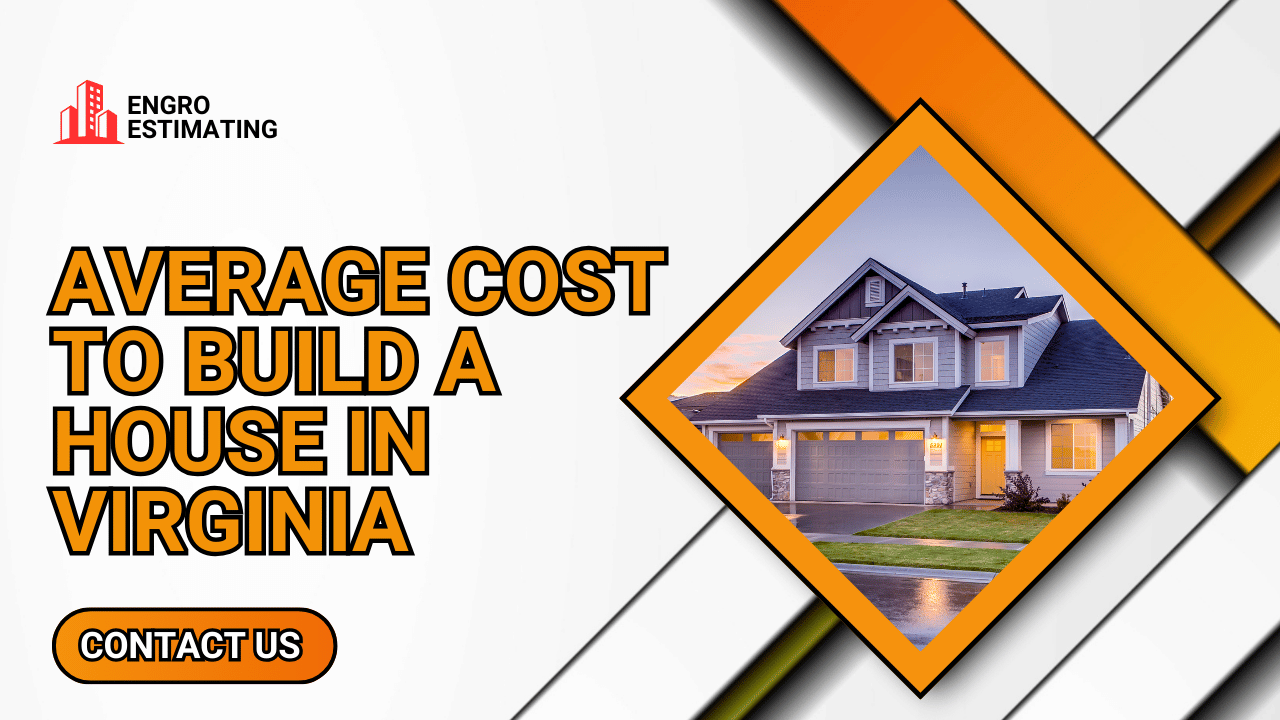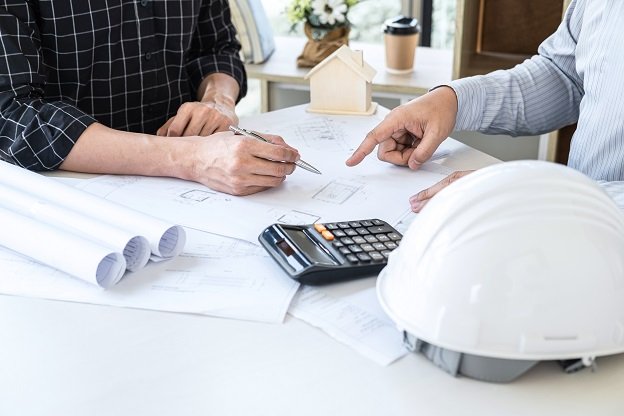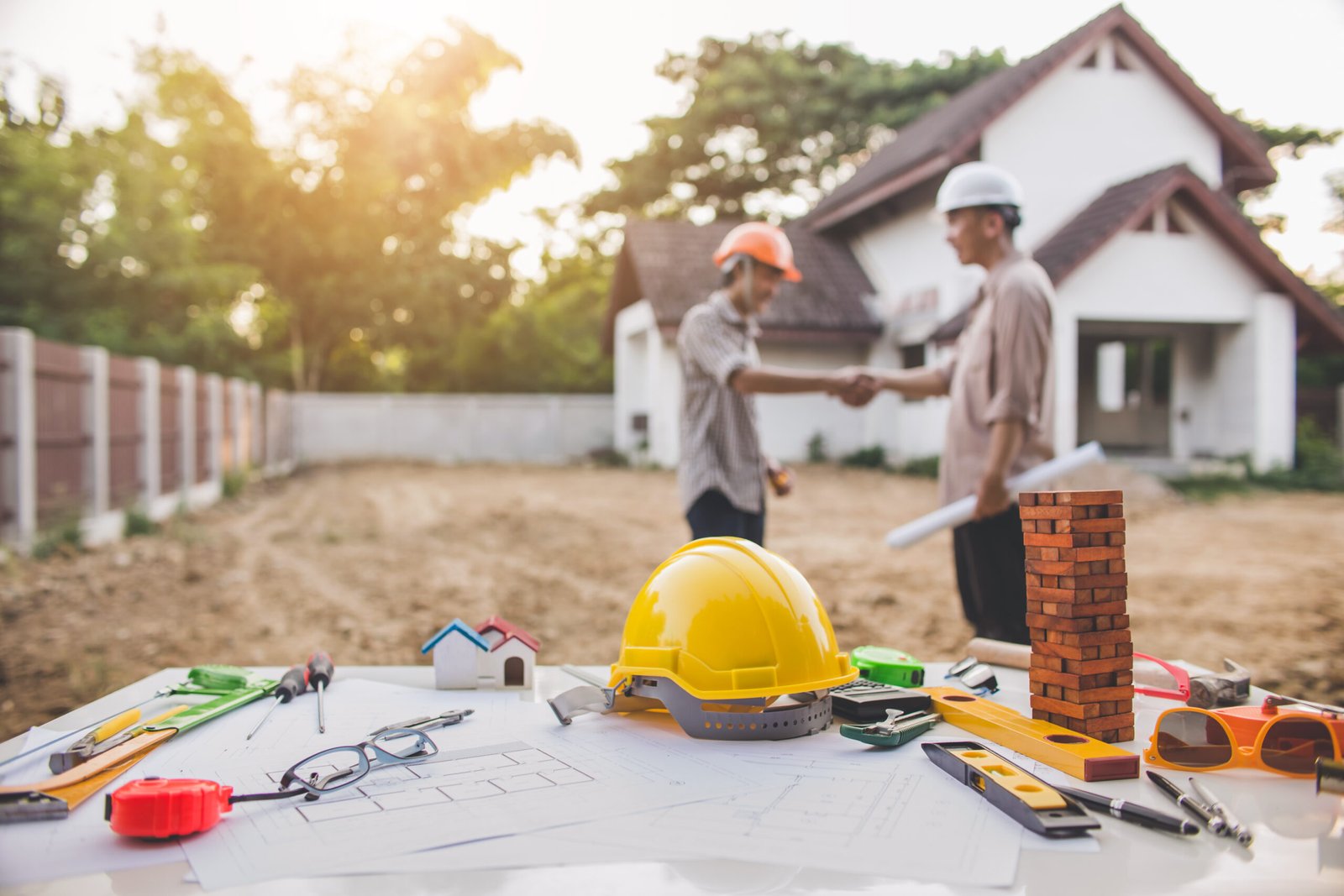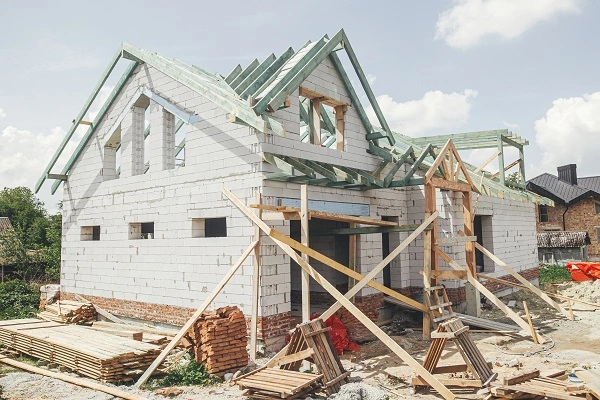The cost of building a House in Virginia varies widely.
Building a home involves more than simply laying bricks. It consists in crafting an environment for comfort, growth, and memories. As 2024 advances, knowing what cost will impact building one in Virginia becomes vital as real estate markets and economies change over time.
With proper information, navigating the Virginia building expense should become manageable. Our extensive knowledge of Virginia’s construction industry lets us see first-hand any shifts or fluctuations that may impact prices directly.
Purpose
By writing this post, we aim to assist in your understanding of how much building a house in Virginia will cost. We provide an in-depth assessment, considering regional differences and differences between developer homes and custom houses. With all this information at your fingertips, you should feel more prepared to begin your house-building endeavor.
Virginia, known for its long and distinguished history, offers prospective homeowners an attractive combination of urban sophistication, historical sites and natural splendor. Virginia enchants prospective homebuyers with its scenic countryside from the Blue Ridge Mountains to Richmond and Norfolk’s bustling cityscapes – providing ample choice of location.
Here is what makes Virginia truly distinctive:
Historical Importance, Urban Charm & Natural Beauty, Numerous Options for Living Space and an Educational and Economic Hub, as well as Recreational and Cultural Diversity, all play essential roles.
What are the Construction costs to build a house in Virginia?
Virginia is one of ten states where building is more cost-effective than purchasing; you could save approximately $96,000 by building in Virginia instead of buying. Furthermore, its per-square-foot costs are reasonable compared to many other states.
Research estimates the average home building costs in Virginia as of 2024 at about $155 per square foot – this represents an approximate figure taken from projects all around the state that include both modest residences and extravagant mansions.
Ascertaining the cost of building a house in Virginia involves many critical considerations. Most expenses are related to building supplies, labour expenses based on local pay norms and worker expertise, and any additional variables which could alter budget calculations. Half the costs go toward these two factors alone.
Materials:
Costs may depend upon the source and quality of materials being used, with Virginia estimates suggesting flooring installations cost anywhere between $7 to $10 per square foot.
Siding costs an estimated range from $3-$7 per square foot; when deciding about it, consider creating an inventory list of materials you’ll be choosing from and rating each according to its quality level (high, medium, or budget).
Labor:
Virginia specialists involved with house construction have different hourly pay rates; structural engineers could demand rates as high as $42.51 an hour, while flooring installers typically charge around $19.04.
Prices associated with design and permit services can differ. Building permits might cost $1,000 to $2,000, while HVAC permits can run anywhere between $250 to $400.
Additional Fees: Asphalt shingle roof installation costs could range anywhere between $172.85 to $280.87 per 100 square feet.
Average costs per acre range between $23,900 and $25,800 in New Hampshire; additional fees may also apply depending on preparation costs.
Factors Affecting Virginia Home Building Costs
Planning a home-building adventure in Virginia involves numerous upfront expenses you should watch for, which are crucial in making wise decisions that suit your goal and budget. Understanding these costs requires having an accurate estimation, although their average may differ due to various factors like site selection.
- Complexity: On average, straightforward minimalist designs cost less than complex architectural masterpieces with multiple components and intricacies.
- Material Selections: Opting for expensive materials could significantly drive up costs; conventionally available items could help keep within your budget constraints.
- Labor Costs: Labor markets in Virginia and local wage requirements are vital when estimating total costs.
- Land Acquisition: Land acquisition can make up a significant chunk of any budget, particularly in prime locations with scenic vistas or desirable settings.
- Permitting and Fees: Zoning regulations, local ordinances and required permissions may incur extra expenses; depending on local rules and the type of development activity at a site, some locations may charge more.
Comprehending Virginia’s Evolving Construction Environment
Be mindful that Virginia’s construction landscape is constantly shifting in response to national and local events if you intend to develop here, which ultimately determines its development cost. What factors influence prices here? Essentially, it all boils down to the following:
- Global Market Influences: Virginia construction may be affected by events occurring worldwide, such as pandemics and trade wars that disrupt markets globally.
- Implications for practice: Increasing home sales in Virginia could drive up construction costs.
- Infrastructure Upgrades or Projects in Virginia: Upcoming infrastructure improvements or projects may increase demand in surrounding communities and drive up building costs in Virginia, increasing building costs.
- Environmental Considerations: Virginia’s laws and regulations related to ecological conservation may influence building practices and costs in Virginia.
Benefits of Construction
The building can offer many advantages in today’s seller market, where properties draw multiple bids from interested parties. Construction may allow you to avoid bidding wars while giving you space to express yourself by giving yourself the freedom to create something from nothing.
- Customization: Building your house allows you to customize every element to reflect your tastes. From floor design and decor selection, through finishing touches.
- Modern Amenities: Today’s designs and technologies may be included in new houses.
- Energy Efficiency: Long-term savings can be realized as new buildings often conform to the latest energy regulations.
- Personal Connection: Being responsible for building your house brings an invaluable feeling of pride and fulfillment.
Benefits of Purchasing
Owning an established house offers additional advantages in today’s seller’s market, such as increased stability in upfront expenditures, the attractiveness of established communities, and a speedier move-in experience.
Purchase of Prefabricated Home: Prefab homes provide convenience. Often quicker to build from the start.
Existing residences regularly occupy established neighborhoods with amenities and lush, mature foliage.
- Cost Predictability: There should not be any financial surprises when purchasing an existing house; as long as no unexpected repairs or improvements arise, the amount agreed upon typically covers everything that needs to be done to it.
- Historical Charm: Older homes may offer distinctive architectural qualities and distinct personalities in Virginia’s rich past.
Construction Impact Analysis Report (CAFRA)
Designing a room according to your tastes may seem appealing, but you must consider all potential challenges associated with the construction process. Here are some significant repercussions you must keep in mind:
- Extended Wait Time: Bespoke homes may take longer to finish construction and may present difficulty when moving in immediately.
- Unforeseen Charges: Even though you know the costs involved with construction, additional unforeseen charges could significantly alter your budget plan.
- Stress and Decision-Making: Selecting materials and designs when building a house are only some of the many considerations to consider when taking on such an undertaking. However, this task could become overwhelming and too much to handle for others.
Repercussions of Buying Existing Home
Buying an existing house can provide the thrill of moving into a place filled with history and character. Yet may also prove more straightforward than starting from scratch. Prospective purchasers considering purchasing such an established home must keep these factors in mind before making their decision:
- Maintenance and Repairs: Older properties often need extensive, instantaneous repair work done quickly or more permanently. In such instances, immediate and expensive upgrades might be necessary.
- Lack of Customization: Your current layout and structure severely limit your options for renovation.
- The danger of Overpaying: Bidding battles in a seller’s market increase buyers’ chance of overpaying.
How Long Will It Take to Construct a House in Virginia?
Building a house in Virginia typically takes between 7 and 12 months, depending on various circumstances, including weather-related delays, material availability issues, or unexpected obstacles arising during construction. With patience and determination, a custom home will soon emerge for your comfort!
Virginia’s building timeline depends upon several vital variables. They include:
- Design and Pre-Construction Phase: Before construction can commence, an initial phase encompassing planning, designing and acquiring any required permissions must occur. Depending upon its complexity and approval by local permitting authorities, this may take between one and three months.
- Site Prep: Initial tasks will involve clearing and excavating, followed by installing the foundation – typically, this takes between one and two months.
- Painting, gardening, and interior details usually fall under this phase as well. Once complete, this phase should also take around one to two months before finishing touches can be added – such as paintings and interior details that add touches, such as cabinets for shelving units, etc.
- Inspections and Approvals: Before moving in, your house must undergo inspection to ensure that it conforms with building laws and regulations. Depending on your schedule and any necessary alterations made before completion, this could take anywhere between one week to six.
Building in Virginia: What Is the Price?
“How Much Does Building a House Cost in Virginia?” is one of the primary questions facing prospective homebuilders in Virginia. Here are some general insights, though prices will depend on factors like region, design style and personal tastes:
Two thousand twenty-four reports that home construction typically costs Virginia between $200K and $450k, depending on various variables (listed below). But these costs could fluctuate.
- Location: Prices are higher in urban environments like Alexandria or Richmond than in rural ones.
- Design and Customization: Naturally, homes featuring luxurious finishes and custom design features will cost more than those featuring standard plans and interior decor elements.
- Materials: Building costs can be significantly affected by selecting premium or eco-friendly building materials, which will increase in price accordingly.
- Labor: Virginia offers competitive labor costs; consider working with professionals or specialists as contractors in Virginia to meet all of your labor needs.




